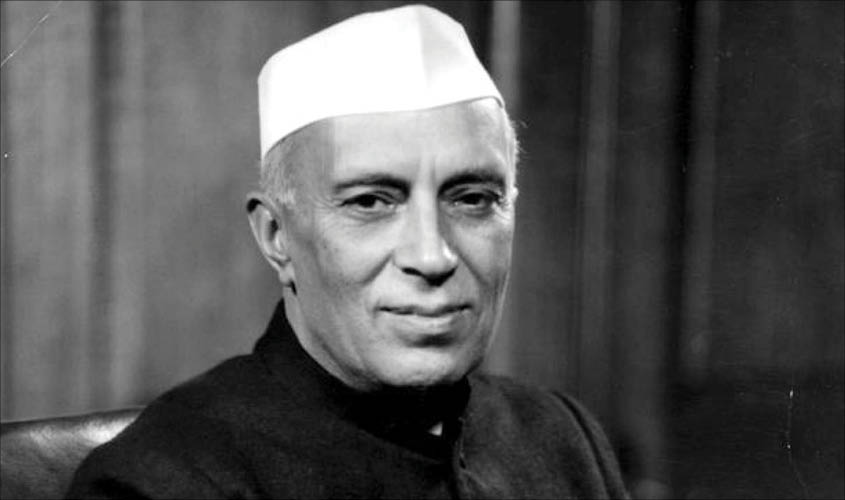Even Nehru’s most ardent chelas grant that his handling of the Kashmir issue, problem and dispute was inapt.
I revere Mahatma Gandhi. I admire Jawaharlal Nehru as the maker of modern India. For some time vigorous attempts are being made to downplay his stellar role as a democratic nation builder. In the long run, history will be on Nehru’s side.
Even Nehru’s most ardent chelas grant that his handling of the Kashmir issue, problem and dispute was inapt.
Nehru’s first mistake was to invite Lord Louis Mountbatten to stay on in India as Governor General. He wanted to become Governor General, both of India and Pakistan, Mohammad Ali Jinnah, would have none of it. After 15 August he did not conduct himself as a Constitutional figurehead but as someone superior to the Cabinet. As early as October 1947 he became Chairman of the Defence Committee, this made it possible for him to become a policymaker. Why Nehru agreed to this is puzzling. Why not Rajaji? The Cabinet was bypassed. He was against sending Indian troops to Srinagar to defend the city from the Pakistani invaders—Pathan tribesmen, ex-army men and other armed outfits. Mountbatten kept London informed of the policies of the Nehru government behind its back. He diluted the terms of the reference India made to the UN Security Council.
Why Nehru allowed a Constitutional head to chair the Defence Committee is beyond comprehension. It was Mountbatten who suggested a plebiscite, under United Nations auspices. The Governor General became a self-appointed mediator. He met Jinnah in Lahore, with “no authority to negotiate”. After Mountbatten returned after his meeting with M.A. Jinnah, Jawaharlal Nehru announced on All India Radio, “We on our part have no intention of using our troops in Kashmir when the danger of invasion has passed. We have declared that the fate of the people is ultimate to be decided by the people…we are prepared when peace and law and order have been established to have a referendum (plebiscite) held under international auspices like United Nations.”
The British Prime Minister, C.R. Attlee was overjoyed and congratulated Nehru on his announcement.
The British had no intention to be neutral. Foreign Secretary Ernest Bevin and his assistant Philip Noel-Baker were pro-Pakistan at the UN. They worked on the Americans at the Security Council and the US delegate Austin.
In the debates in the Security Council in January 1948, the leader of the Indian delegation was no match for Sir Zaffarullah Khan, the leader of the Pakistan delegation.
Through Noel-Baker’s machinations in the Security Council, the Indian complaint restricted to Pakistan’s invasion, was converted into an India-Pakistan problem. In the Council, UK, US, France and Canada supported the Pakistan stand that raiders could not be induced to pull back, “without a change of government in Jammu & Kashmir”.
India took its complaint against Pakistan to the Security Council under Chapter Six of the United Nations Charter, which deals with disputes. We should have gone to the Security Council under Chapter Seven, which addresses itself to acts of aggression. A point of view exists that if India had not gone to the Security Council, Pakistan would have. The answer to this is not contestable. Not even the likes of Noel-Baker would have proved that India was the aggressive.
India and Pakistan have fought four wars. Each time Pakistan has lost. Could a fifth war occur? It is very unlikely. Not on a large scale. Clashes across the Line of Control will continue. A nuclear war is not on option. Hence, both countries must aspire for better relations. Pakistan should open talks on trade, famine and flood control, exchange of academicians and scholars, cultural exchanges, tourism. Such steps will be readily welcomed by India and the international community.
* * *
Before the end of 2018, Chhattisgarh, Madhya Pradesh and Rajasthan will go to the polls. The dates for these elections were announced yesterday. The outcome of these elections will impact on the Lok Sabha elections. Various TV channels have come up with their predictions. Broadly speaking the tentative conclusions are not wide apart. In Rajasthan, the BJP has a lot of ground to cover. As of today the Congress is ahead. In MP it is advantage to the NDA. Chhattisgarh is too close to call.
Kumari Mayawati has upset several carts. The Congress cart has lost two wheels.

